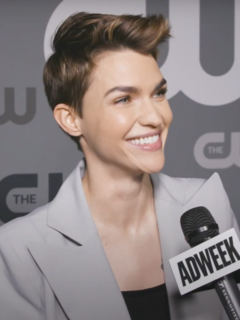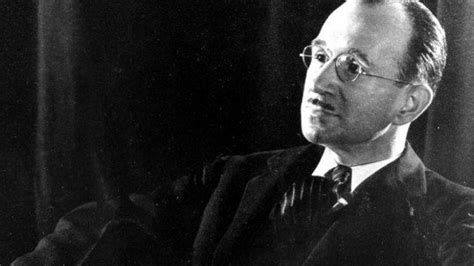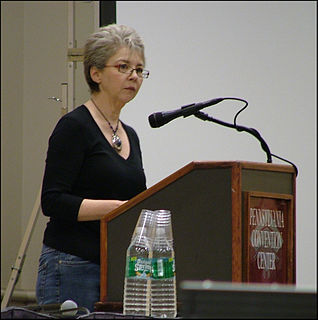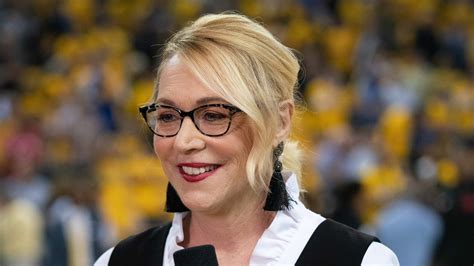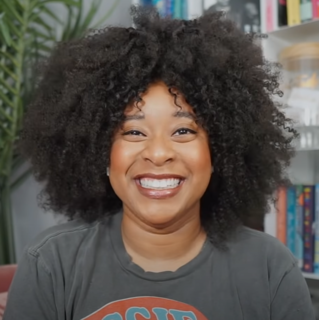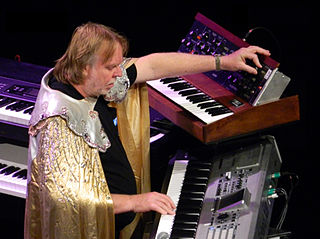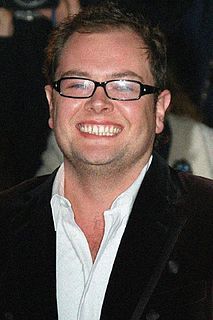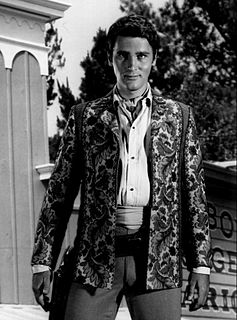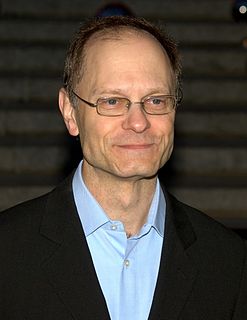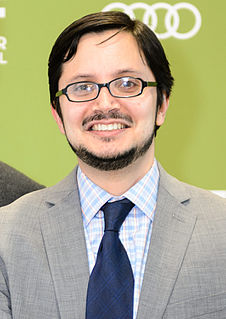Top 108 Interviewer Quotes & Sayings - Page 2
Explore popular Interviewer quotes.
Last updated on November 23, 2024.
I was a VJ to begin with, so I had a good year of interviewing artists, but then I would spend half my time being interviewed about half my projects, and the other time, other people. It was good because it made me a better interviewer because I knew what people didn't like being asked, and what they enjoy being asked, so I am super used to it.
And what are your interests and hobbies, Nicholas?" Annabel asked faintly, sounding like a cross between a television interviewer and a hostage. Nick considered this for a minute, and then said "I like swords." Annabel leaned over her plate and asked, her voice changing "You fence?" "Not exactly," Nick drawled. "I'm more freestyle.
Years ago, I heard an interview with violinist Yehudi Menuhin. The interviewer said, "Do you still practice?" And he said, "I practice every day." He said, "If I skip a day, I can hear it. If I skip two days, the conductor can hear it. And if I skip three days, the audience can hear it." Oh, yes, you have to keep that muscle firm.
The psychiatric interviewer is supposed to be doing three things: considering what the patient could mean by what he says; considering how he himself can best phrase what he wishes to communicate to the patient; and, at the same time, observing the general pattern of the events being communicated. In addition to that, to make notes which will be of more than evocative value, or come anywhere near being a verbatim record of what is said, in my opinion is beyond the capacity of most human beings.
Cornelius Castoriadis, the great French social philosopher of Greek origin, was asked once by an exasperated interviewer: "What do you want, Mr. Castoriadis - to change humanity?" He answered: "No, God forbid, I only want humanity to change itself, as it has done so many times in the past." I would be inclined to answer the same way.
Oftentimes, if you're talking to a seasoned interviewer who asks you a question, they may do a follow-up if they didn't quite get it. It's rare that they'll do a third or fourth or fifth or sixth follow-up, because there's an implicit, agreed-upon decorum that they move on. Kids don't necessarily move on if they don't get it.
When I was on an American show in 2015, I tried to talk about the threat Vladimir Putin posed to the free world. The interviewer said, "Wake me up when he takes over Poland." We heard something similar from years ago and we ended up with World War Two. Putin decided to skip Poland and went straight to Wisconsin. Putin is at war, a hybrid war, with the free world. His domestic propaganda is based entirely on a strong man challenging the free world. When the demonstrations around Russia began, the harsh response was because it was more important to show strength.
What's the worst, is when people clearly haven't researched you. One time an interviewer asked me if I do a lot of plays. I'm like, yeah. Have you Googled me? There's this thing called Google, and you can ask Google that question. Then you could come to me with informed questions that didn't make me feel like I am brand new to the world.
Interviewer: Have you ever considered writing nonfiction? Mary Doria Russell: Oh, honey, I did! Let's see...There was "A Reconsideration of the Evidence for Cannibalism at the Krapina Neandertal Site." That was a big hit. And who could ever forget "Cutmarks on the Engis II Calvarium"? Then there was "Browridge Development as a Function of Bending Stress in the Supraorbital Region." I got tons of reprint requests for that one. Trust me fiction is better.
I have a list as long as my arm but I find those lists sort of self-defeating because you start to name and then after [the interviewer] leaves the room you go 'Ah, I forgot this person or that person.' So I just don't do it anymore. Hopefully if you make work that people like, they'll get in contact with you.
I remember when 'A League of Their Own' was coming out in '92, when I was doing interviews, it seemed like every interviewer at some point would say, 'So... would you consider this a feminist movie?' People are worried that it's a taboo thing, so I took great relish in saying, 'Yes, I would. Write that, yes.'
I can tell when I've met a bad journalist when they say, "I've met Madonna," or "I know Marilyn Manson." Because I haven't met anyone I've ever interviewed. I've sat down in the position of an interviewer, and they've sat down in the position of an artist trying to promote a product. We have no relationship. I'm able to ask them questions I'd never be allowed to ask them if we were casual friends. It's a completely constructed kind of situation.
Interviewer: What would you say to a woman in this country who assumes she is no longer oppressed, who believes women's liberation has been achieved? el Saadawi: Well I would think she is blind. Like many people who are blind to gender problems, to class problems, to international problems. She's blind to what's happening to her.
[Demystifying lesbian sex for an interviewer] In a way, the sex isn't really that different... From what I can tell, no, not really. All the things that men and women do together, think of everything that men and women do together, women and women can do together. And that makes you realize that sex is just simply about connecting with another person, or about intimacy.
'What is your desired salary?' The unwritten rule when it comes to salary is this: whoever proposes a number first loses. When you interview, you should never feel pressured to answer this question. Simply let your interviewer know that the most important thing to you is how well you fit the position.
Oprah Winfrey is a big role model for me from a business capacity and a creative capacity. She is an incredible interviewer who cultivated a certain style by inserting her own personhood into a show on national television at a time when no one was talking about empowerment, spirituality, or our inner lives.
I don't think I've ever googled myself. But I do read some things... I mean, if I know that I was with an interviewer and I kind of figure that he or she got something bad or something good from the interview, then I'll read the piece when it comes out. But other than that, I'd have to have a reason to read it - and, usually, I don't have a reason.
My parents didn't have a lot of money when I was growing up. We were comfortable, but I didn't go to Oxbridge, and yet every American interviewer I get says to me, 'You're related to Charles II! Your grandfather was a baronet!' And it's infuriating, because that is a part of my history, but you're trying to turn me into a posh boy, and I'm not.
Since the 1980s, I've been known more for my TV work, I used to host 'Live at Jongleurs' and of course 'Grumpy Old Men,' and so it's really all come from there. It's been a funny career really, there are people that know me now as a TV person, a comedian, an interviewer - I've had people genuinely gobsmacked to find out I am a musician.
Listen, Michael Jackson is really funny. To have time to spend with him and actually be around him, he's not what....people think he is. Michael Jackson's like a black belt too, so he will kick your ass if you say something about him." In disbelief the interviewer replied "No, really?" to which Will said, "Yes, Michael Jackson kicked over my head!
This happened years and years ago, right as our videos were first being played on MTV. The interviewer said, "You guys are getting famous now. Are you going to be riding around in limousines, doing drugs, and sleeping with beautiful women?" And I was a precocious young man, and my snappy comeback to that cheerful question was, "We're willing to sleep with beautiful women." But no part of the question was in the article.
I think figuring out how to do the best job you can, because frankly, no matter what gender you are - in television news - you're all measured by the same thing: which is the news you make or break, and the ratings you are able to deliver. But, how the audience hears you - or how the interviewer does - is also interesting.
I was recently interviewed for radio in relation to the "Thanksgiving" show [2001] at the Saatchi gallery that I was part of. The interviewer said that people in London were very disturbed that I showed a picture of myself battered ("Nan One Month after Being Battered", 1984) and they thought that I set it up. I was accused of deliberately putting on a wig for that particular picture.
Interviewer: [What do you get up to] In real time?
Brian Molko: I go on Placebo sites and have a terrible time trying to convince fans it's actually me. No one ever believes it. I've spent about four hours, giving away intimate details about myself that I'd never tell a journalist, in an effort to prove that it's me.
In later years, holding forth to an interviewer or to an audience of aging fans at a comic book convention, Sam Clay liked to declare, apropos of his and Joe Kavalier's greatest creation, that back when he was a boy, sealed and hog-tied inside the airtight vessel known as Brooklyn, New York, he had been haunted by dreams of Harry Houdini.
I felt she had two unhappy marriages, it was wonderful the way it was. When Audrey would be asked, she'd also say, 'Why mess with a good thing?' I remember her saying to one interviewer it's more romantic this way because it's not another piece of paper, but out of loyalty to each other that binds us together.
Interviews, when they are just simply an exercise in hearing what you want to hear, are of no interest. And many, many, if not most interviews have that character. The interviewer who comes in with a list of bullet points they're going to address one after the other. Interviews, properly considered, should be investigative. You should not know what you're going to hear. You should be surprised.
Often, as an interviewer, particularly when you're talking to highly visible people, celebrities, and it's known that negative things have happened, they don't want to talk about it, or you have to really work up to it. You have to carefully construct the conversation so that they feel open enough to discuss some of those things with you.
